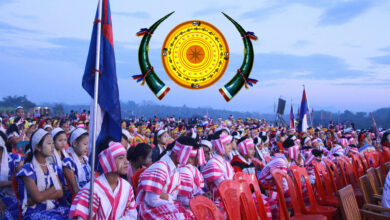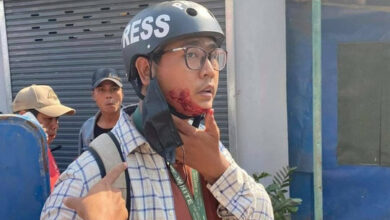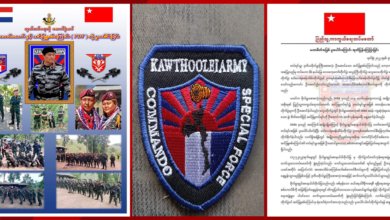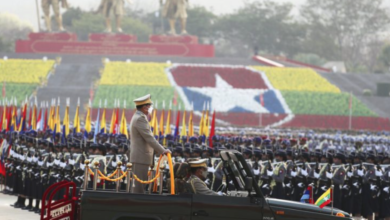Broad-based Community Involvement Is Central to Success of the Karen Political Movement and Struggle
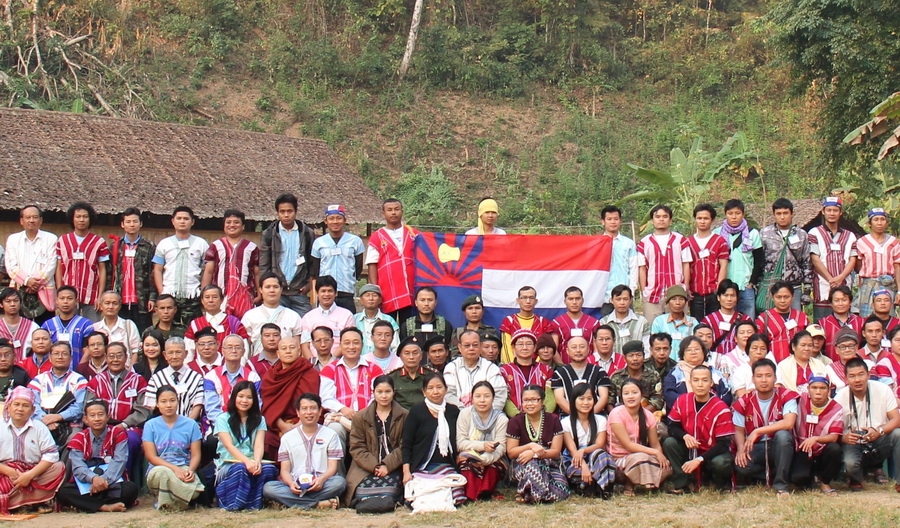
In the wake of the Karen National Union’s sudden walk out from the United Nationalities Federal Council’s conference and its subsequent temporary suspension of its membership in the ethnic alliance in late August, Karen communities and Karen civil society organizations were left baffled, confused, shocked, and enraged. They were left wondering what will be next in inter-ethnic relationship and cooperation between the KNU and other ethnic armed groups, and how the KNU will proceed with the current peace process. Many of them could hardly comprehend why their leaders would do such thing during this critical moment, given that KNU’s success in negotiating for a long term political settlement with the government will very much depend on broader ethnic armed groups’ collective ability to articulate a common position and stick to their gun together.
For many Karen people, it was also unusual for KNU to withdraw from an ethnic alliance, given that it had always been at the forefront of the ethnic political movement in the past. If information is true, the fate of the KNU’s future participation in the UNFC will be decided at its central committee meeting next month. But in the meantime, Karen communities, both inside and outside, are eagerly and anxiously waiting for the outcome. According to sources from some high-level KNU officials and Karen civil society organizations, a majority of the KNU leadership is against leaving the ethnic alliance. Similarly, a majority of the Karen communities and civil society organizations worldwide also want to see the KNU rejoin the ethnic alliance and assume a more active role in the organization instead of sitting on the sideline.
Meanwhile, a generally passive Karen population has also begun to show more interest and become more engaged in debates and discussions regarding Karen affairs. Many Karen youths took to social media to express their dismay and displeasure at some of the Karen leaders who are seen as ‘cozying’ up to and more interested in concluding a quick deal with the government while ignoring the reality on the ground and concerns of the local Karen communities. In both public and private discussion forums, many Karen people have called for more public engagement and inclusiveness in the KNU’s decision-making process.
Recently, more than twenty Karen communities and Karen organizations worldwide have sent a joint letter to the KNU’s leaders and urged them to carefully reconsider their decision and region the UNFC. For so long ordinary Karen people and Karen civil society organizations have felt that they have been left out of the political decision making process that affects their well-beings and fate. For decades the KNU’s decision-making process has been tightly controlled and largely inaccessible, and Karen communities have been left mostly on the sideline. In other words, the majority of Karen people and Karen civil society organizations have very little say in how KNU is run and how the decision making process at the high level is made.
Since the current ceasefire agreement was signed with the Burma’s government in 2012, Karen communities and civil society organizations have felt that their voices have been ignored and they have been poorly consulted with. Despite their attempts to reach out to top high level KNU’s officials and voice their concerns, they complain that their efforts have been mostly futile. With this in mind, in the wake of this KNU-UNFC drama and many issues and concerns arising out of current peace process, many argue that this might be an important moment for Karen people to seize the opportunity and address some of the broader issues regarding the role of civil society organizations and broad-based community participation in the Karen political movement in general and decision making process in particular.
Why Karen civil society organizations are critical to the survival of the Karen political movement and deserve to be heard?
There is no denying that the majority of Karen people have acknowledged the KNU as a legitimate and a true representative political organization of the Karen people. For over six decades, it has been at the center of the Karen resistance movement and courageously stood up to successive authoritarian governments in Burma in order to protect Karen communities and fight for the cause of the Karen people. Despite having gone through a great deal of misery and untold sufferings throughout this long struggle for justice and equality, the majority of the Karen people continue to firmly believe in the KNU’s leadership and its ability to lead them to their destiny.
In other words, regardless of circumstances, the KNU will continue to retain the support of the Karen people so long as the Karen struggle continues. But under the shadow of the KNU and broader Karen political movement, what is important but less well-know and acknowledged is the role of the Karen civil society and community-based organizations working on the ground to assist local Karen communities and support the Karen struggle. They have been active in various tasks such as human rights advocacy, environmental protection, and community development and are very instrumental in providing social, education, and healthcare services in the local Karen communities. In certain way they act as invisible hands to fill most of the voids left unfilled by the KNU at both local and district levels. In most Karen communities under KNU’s control, Karen community-based organizations have become the main service providers and work closely with the local people. Every year, members of the Karen community-based organizations such as the Karen Women Organization, Karen Student Network Group, Karen Youth Organization and many others would trek the mountains, travel the rivers and brace the malaria-infected jungles in order to bring much needed assistance to scattered and displaced Karen communities throughout the rural Karen State. As a result, many of them have firsthand experience of the atrocities committed by the Burma Army against the Karen people.
Despite their low profile and less acknowledged role, community groups have been at the forefront of the Karen grassroots and community movements. In their respective roles, they have brought international attention to the plight of the Karen people, a formidable task that the KNU has been largely unable to do. Working closely with local communities and other outside civil society organizations, they have been able to garner support and raise funds to provide services, promote community development programs, and fight for human rights and environmental protection in the Karen communities. While the KNU represents the face of the Karen resistance movement, Karen civil society organizations are doing most of the important works crucial for the survival of the local Karen communities. Despite this work, their efforts and contributions to the Karen political movement have not been recognized or acknowledged by the KNU.
In the political sphere and the important decision making process, their voices and influence have been mostly lacking. With this in mind, since efforts and works done by Karen civil society organizations will continue to be a critical part of the continued Karen political movement, it’s time and wise that they are acknowledged by the KNU’s leadership, that their voices and concerns be heard and taken into account in any major decision making processes that would have long term political, economic, or social implications for the Karen people.
In any national movement and political struggle, inclusiveness and broad-based participation by local communities and citizen groups are critical to the survival of the organization. To keep the organization alive, new blood and talents need to be recruited and promoted by the national leaders. But for this to happen, policy of inclusiveness and openness to public participation need to be promoted. In both the past and present KNU, organizational and power structure, decision making process has been highly concentrated, and at times the process manipulated and sabotaged by the few against the wish of the many.
To recruit new blood and attract new talent, the KNU needs to open up more space for broader community participation. Beside consultation and seeking inputs, this would also require allowing representatives of the Karen communities and civil society organizations to participate in the election of new leadership at the once-every-fourth-year KNU Congress. Currently, the electoral process has been very narrow and tightly controlled, and only a tiny minority of selected representatives from districts and brigades level can take part. The process has been largely closed to representatives of the Karen civil society groups. As a result, this has often led to accusations by many people that the system is undemocratic and does not represent broader Karen communities. In addition, because of its narrow space for community participation and public consultation, the process could be manipulated by different factions and secret deals struck to advance the agendas of certain individuals and groups in the organization. Consequently, this resulted in the election of the wrong people for the wrong jobs. To promote inclusiveness and broad-based community participation in the political process, the KNU needs to reform its leadership selection’s system and open up more space for representatives of the Karen communities and civil society organizations to participate and play a role. If the Karen political movement is to be a peoples’ movement, then more voices, diverse opinions and participation from broad-based community representatives are needed. Unless a policy of inclusiveness and broader participation by community representatives are promoted, this could lead to an alienation of and a failure to attract young blood and new talents. The KNU has to be willing to recognize and acknowledge the role of Karen civil society organizations as important players in Karen political movement, it’s important that their voices and opinions are seriously taken into account and included in any major decision making processes.
*Saw Greh Moo is a policy analyst at the Salween Institute and Saw Sweener Soe is a graduate of the Chicago’s North Park University and currently serves as a policy and political adviser for KNLA Brigade 7. They can be reached at grehmoo@hotmail.com and sweenersoetk@gmail.com

